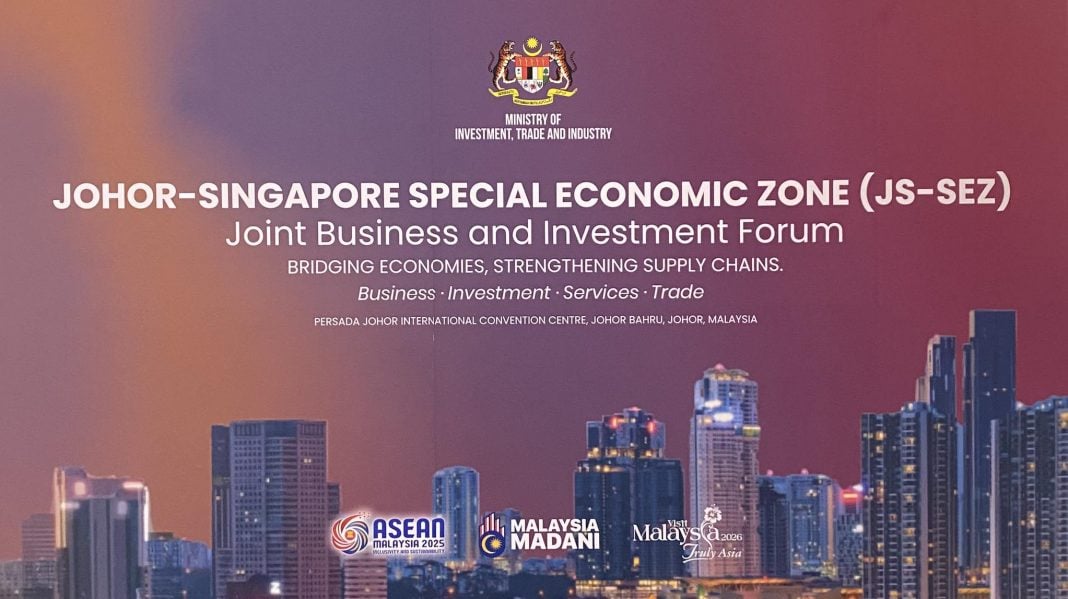JOHOR BAHRU: Johor reportedly already has RM23 billion (S$6.9 billion) in its investment pipeline for April alone, on top of this year’s first quarter investments worth RM27.4 billion — which Johor Chief Minister Onn Hafiz Ghazi described as a “powerful early signal of the momentum” behind the Johor-Singapore Special Economic Zone (JS-SEZ) as he spoke at the two-day JS-SEZ Business and Investment Forum on Monday (April 21), according to The Business Times.
This follows Bernama’s Sunday report, citing Mr Ghazi, noting that Johor is targeting high-tech and green investments that can create better-paying job opportunities while supporting the state’s commitment to sustainable growth.
He said the initiative “will significantly contribute to Johor’s ambition of becoming a regional hub for sectors such as the digital economy, research and development, advanced manufacturing, agrotechnology, tourism, and logistics.”
The forum, held at the Persada Johor International Convention Centre, themed “JS-SEZ: Bridging Economies, Strengthening Supply Chains”, was organised by Malaysia’s Ministry of Investment, Trade and Industry (MITI), Singapore’s Ministry of Trade and Industry (MTI), and the Johor state government.
The chief minister also provided updates on the Invest Malaysia Facilitation Centre – Johor, which was launched in February to “streamline investment processes, attract global investors, and foster economic growth”, according to the Malaysian Investment Development Authority (MIDA).
Mr Ghazi said that ever since, the centre has handled 42 “high-impact” projects now under accelerated processing, and the once 24-month bureaucratic processing times are now achievable in just 13 to 14 months.
He noted that this is not just about efficiency but a “clear signal” to investors that “Johor is serious, responsive and ever-ready.”
To strengthen the JS-SEZ, Mr Ghazi proposed two new initiatives. First was establishing a regulatory sandbox in Johor, which would provide an environment to test new technologies and policies, especially in sectors constrained by regulation.
He noted that the sandbox will allow participating companies, universities, and consortia to achieve faster development cycles, public-private collaboration, and real-world policy experiments.
Mr Ghazi also suggested developing a new “Asean industrial park” within the JS-SEZ to attract investments from the Regional Comprehensive Economic Partnership (RCEP) countries comprising China, Japan, South Korea, Australia, New Zealand, and the 10 ASEAN member states.
The park would target high-value sectors such as advanced manufacturing, green technology and the digital economy, Mr Ghazi said. He also suggested customised incentives, such as tax breaks and simplified talent mobility, to attract foreign investors.
MITI said in a statement on Sunday (April 20) that the forum has received an overwhelming response, with nearly 1,000 participants registered from both countries, bringing together top policymakers, business leaders, government-linked companies (GLCs), institutional investors, and industry experts.
Other key figures at the convention included Singapore’s Deputy Prime Minister Gan Kim Yong and Malaysia’s Investment, Trade and Industry Minister Tengku Datuk Seri Zafrul Abdul Aziz, who officiated the event. /TISG

